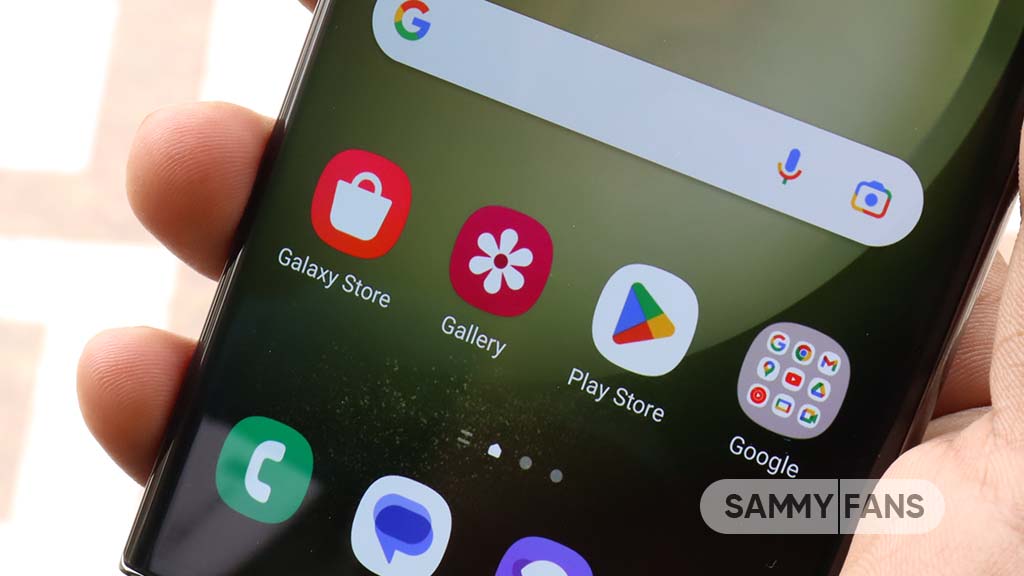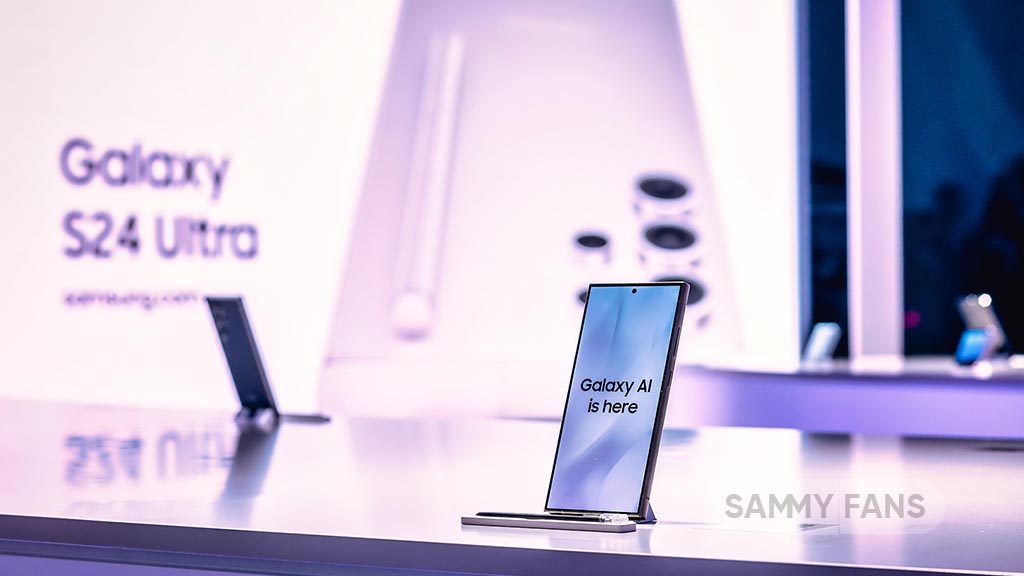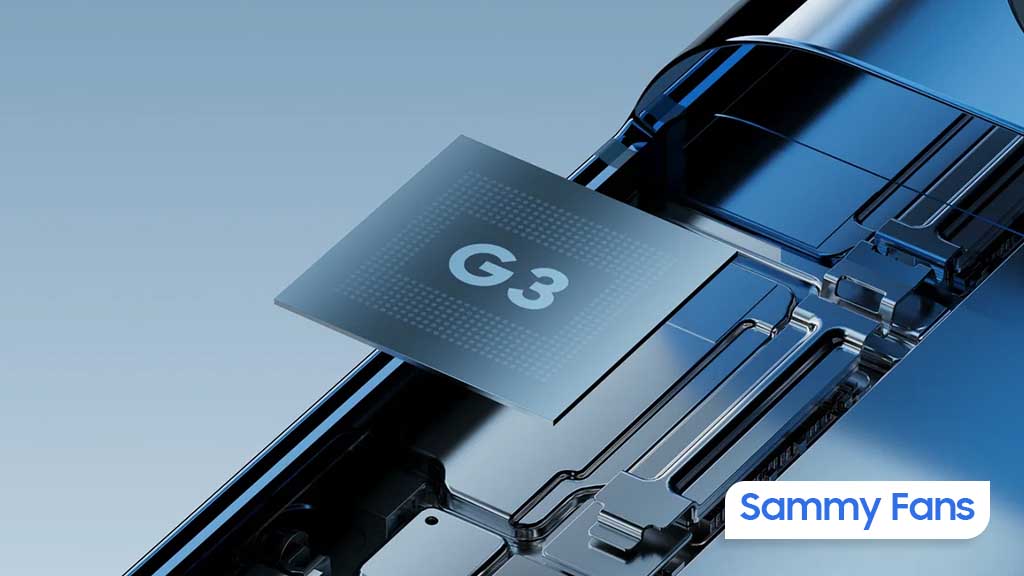News
July 2024 Android System update improves Play Store threat analysis

Google detailed its July 2024 Android System Update. The release isn’t out for Android devices, but details suggest improvements for Google Play Store’s full threat analysis feature.
According to the info, July 2024 Android System Update will let users send new apps for full threat analysis. Android’s install-time protection is powered by Google Play Protect, which is getting improved with the July release.
The change will be applied with Google Play Store v41.7, which apparently released yesterday. Compatible smartphones may start getting the updated Play Store version through the background installation method shortly.
Google Play Store v41.7 (2024-07-01)
- [Phone] Google Play Protect install-time protection now allows users to send new apps for full threat analysis.
Android smartphones often receive Play System updates from Google. These releases usually get installed when you restart your handset or update the Play Store. Google brings bug fixes and functional improvements for Android.
These updates make your Android phones even more secure and reliable and give you new and useful features. Over the last few months, Google has been offering new Google Play Store updates every week, providing:
- New Features to help you discover the Apps & Games you love.
- Optimizations allowing faster and more reliable download and installation.
- Continuous improvements to Play Protect to keep your device safe.
- Various performance optimizations, bug fixes and improvements to security, stability and accessibility.
News
Galaxy AI One UI 6.1 released for Samsung Galaxy phones, tablets [List]

Galaxy AI has many features that make flagship Samsung phones like new. Debuted with the Galaxy S24 series, Samsung’s Galaxy AI has been released for the most popular premium phones, foldables, and tablets.
In May 2024, Samsung upgraded all the 2023 flagship phones, tablets, and foldables with Galaxy AI features. Earlier in June 2024, the company further expanded the AI features with One UI 6.1 update to flagships released in 2022.
Galaxy AI brings both on-device and cloud-based artificial intelligence features. Older Pixel smartphone users are feeling robbed as they are not getting the AI advancements that Google announced with the Pixel 8 Pro.
Samsung’s Galaxy AI brings many cool features such as Live Translate, Interpreter, Generative Edit, Note Assist, Browsing Assist, Video Editor, Generative Wallpaper, and Circle to Search by Google.
Samsung devices getting Galaxy AI features
Galaxy S23 series, Galaxy Z Flip 5, Galaxy Z Fold 5, and Galaxy Tab S9 series benefited in the first phase of rollout. However, the second phase of Galaxy AI resumed after a slight break to the Galaxy S22 series.
The Galaxy S23 and other 2023 models widely received the update along with the Galaxy S22’s rollout. Initially available in South Korea, the AI-packed One UI upgrade is now available on your handset.
Galaxy S Series
- Galaxy S24 Series
- S24, S24 Plus and S24 Ultra
- Galaxy S23 Series
- S23, S23 Plus and S23 Ultra
- Galaxy S22 Series
- S22, S22 Plus and S22 Ultra
- Galaxy S21 Series [Not all features]
- S21, S21 Plus and S21 Ultra
Galaxy Z Series
- Galaxy Z Fold 5 and Z Fold 4
- Galaxy Z Flip 5 and Z Flip 4
Galaxy Tab Series
- Galaxy Tab S9 Series
- Tab S9, Tab S9 Plus and Tab S9 Ultra
- Galaxy Tab S8 Series
- Tab S8, Tab S8 Plus and Tab S8 Ultra
News
Google Pixel 10 to pack 3nm Tensor from TSMC, Samsung ousted

Google may opt for 3nm TSMC for the development of Pixel 10’s Tensor G5. Starting the first Tensor, Samsung has been manufacturing Google’s custom processors. However, the Foundry partnership would mark a halt (or an end) with the launch of Pixel 9’s Tensor G4.
According to CTEE, Google Pixel 9’s 3nm Tensor G5 has already been ordered to TSMC. However, the upcoming Tensor G4 is being fabricated on Samsung Foundry’s 4nm process. As the chip is ordered, Google may have finalized the design of the Tensor G5.
Samsung Foundry is facing yield issues with its 3nm process technology. It was reported that the 3nm yield is just 20%, which is not adequate for greenlit mass production. It is also harming Samsung’s Exynos plans, with Galaxy S25 reportedly using MediaTek’s SoC.
Thanks to the 3nm process, Google’s future flagships will offer massive performance and power efficiency improvements. Meanwhile, time will tell whether the Pixel maker has chosen TSMC’s N3E (second-generation 3nm) or N3P (third-generation 3nm) process.
Qualcomm has already switched to TSMC due to overheating and performance issues in Snapdragon chips. Not only mobile chipmakers, but big giants like Nvidia, have also ditched Samsung. This would further widen the gap between TSMC and Samsung Foundry.
News
iPhone 16 to get Samsung’s M14 OLED, Galaxy S24 sticks with M13

iPhone 16 would have an edge over Samsung’s Galaxy S24 Ultra in display tech. A Korean media outlet reports that Samsung is slated to supply its latest M14 OLED for Google’s Pixel 9 and Apple’s iPhone 16 Pro. Both companies will utilize the advanced screens in their upcoming flagships.
Samsung apparently used M13 OLED in its Galaxy S24 series this year. However, the upgraded M14 panels will be brighter and more power-efficient than the current products. With advanced M14 OLED, Apple’s iPhone 16 Pro and Google’s Pixel 9 would outshine the S24 Ultra.
Google will introduce the Pixel 9 series in August this year. Samsung will hold its next Unpacked event in July to unveil new foldable phones. Apple, on the other hand, is expected to introduce the iPhone 16 series in its usual timeframe – September.
Samsung’s foldable phones may not feature the M14 screens. OLEDs supplied by Samsung Display are evaluated by their material set rating. The higher the material set, the higher brightness the panel will bring and offer enhanced power efficiency.
Last year’s Google flagships debuted the M13 OLED display, followed by the Galaxy S24 series. The Pixel 8 and Pixel 8 Pro introduce Actua and Super Actua display tech. It offered higher brightness and power efficiency over previous Pixel smartphones.
Apple is the biggest client of Samsung Display. The company has been in discussion with the Korean display maker for its upcoming iPhone models. It recently approved the panel prototypes supplied by Samsung, which entered mass production last month.
Following this display upgrade, Samsung Mobile may also utilize it in the next year’s Galaxy S flagships. Previous rumors also claimed that the company would bring advanced display to Ultra and Plus variants. However, further details are yet to be known.












